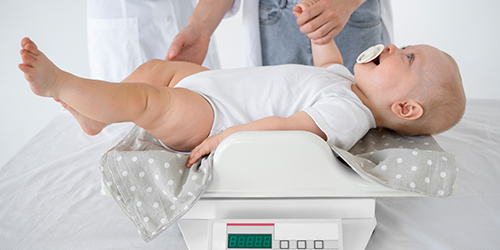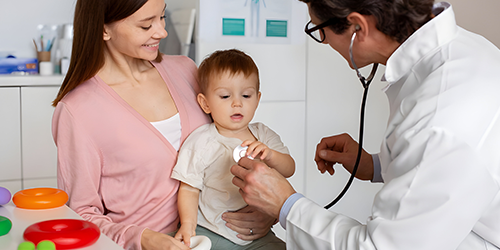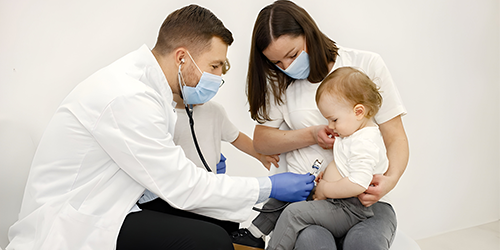


Introduction
Bringing a new life into the world is a momentous occasion, and the health and well-being of your baby become paramount. Regular check-ups are a crucial component of ensuring your baby’s health during the early stages of life. Baby well check-ups, often referred to as pediatric well-visits, are a series of medical appointments that monitor your child’s growth, development, and overall health. In this article, we will explore the significance of these well check-ups and what to expect during these visits.
The Importance of Baby Well Check-ups
Early Detection of Health Issues: Regular baby check-ups are essential for the early detection of health issues. Many serious health conditions can be successfully managed or even prevented when caught early. Pediatricians are trained to identify signs of potential problems and offer guidance on necessary interventions.Monitoring Growth and Development:
Babies grow and develop rapidly during the first few years of life. Regular check-ups include measurements of your baby’s weight, height, head circumference, and developmental milestones. These measurements help ensure your baby is growing at a healthy rate and reaching age-appropriate milestones.


Vaccination Schedule:
Baby well check-ups are closely tied to vaccination schedules. Vaccinations are crucial in protecting your baby from serious diseases and infections. Your pediatrician will administer vaccines according to the recommended schedule, ensuring your baby is adequately protected.Guidance and Parenting Tips:
Pediatricians are a valuable resource for parents, offering advice on various aspects of infant care, from feeding and sleep routines to behavior and safety. They can address concerns and provide guidance on your baby’s specific needs.

Building a Relationship with the Pediatrician:
Regular well check-ups allow you to build a relationship with your baby’s pediatrician. A trusting relationship with your healthcare provider ensures open communication and personalized care.The Well Check-up Schedule
Baby well check-up schedules are an essential part of ensuring the health and development of infants and young children. While the specifics of these schedules may vary by country and individual circumstances, a typical schedule in the United States is outlined as follows:
1. Newborn Visit (within the first week of birth):

This is the very first appointment, which typically occurs within the first week after birth. It is crucial for assessing the overall health of the newborn and addressing any immediate concerns. During this visit, the pediatrician will conduct a thorough physical examination, check for any congenital issues, and provide guidance to parents on newborn care, breastfeeding, and any special needs.
2. 2-Month Well Check-up:

At two months of age, your baby will have the first well check-up after the newborn visit. This appointment is significant because it is when the first set of vaccinations is usually administered. The pediatrician will also assess the baby’s growth and development to ensure they are meeting important milestones.
3. 4-Month Well Check-up:

The 4-month visit includes more vaccinations and continued monitoring of the baby’s developmental progress. The pediatrician will evaluate the baby’s physical and social development, as well as provide guidance on feeding and sleeping.
4. 6-Month Well Check-up:

Additional vaccinations are administered at the 6-month visit. The pediatrician will also continue to evaluate the baby’s growth and development, making sure that they are reaching appropriate milestones for their age.
5. 9-Month Well Check-up:

At nine months, the focus is on assessing your baby’s growth, motor skills, and social development. This visit provides an opportunity to address any concerns related to physical and cognitive development.
6. 12-Month Well Check-up:

The one-year check-up is a significant milestone. Your baby will receive key vaccines at this point, and the pediatrician will discuss important topics such as transitioning to solid foods and other developmental milestones. It’s a pivotal appointment to ensure your child is on the right track.
7. After the First Year:

Beyond the first year, well check-ups are generally scheduled at 15, 18, 24, and 30 months of age. These visits continue to monitor your child’s growth and development, administer necessary vaccinations, and address any concerns that may arise.
8. Annual Check-ups from Ages 3 to 18:

Starting at age three, children typically transition to annual check-ups. These appointments focus on physical and psychological development, addressing any health issues, and ensuring that the child is thriving academically and socially.
Preparing for Baby Well Check-ups:
In addition to understanding the schedule, parents can take some steps to ensure these appointments are as productive as possible:


